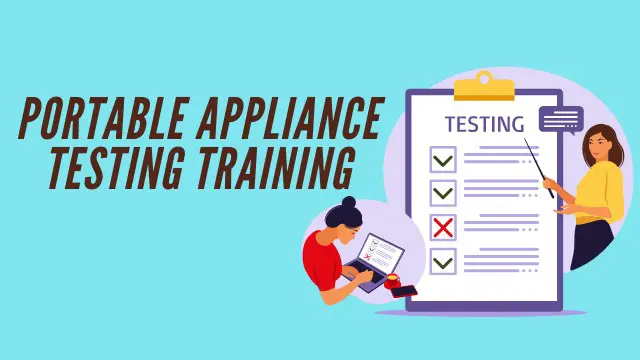
PAT Testing - Portable Appliance Testing Training
CPD Certified| Free PDF Certificate | Lifetime Access | Learner Support | No Hidden Fees | 100% Success Rate
EDURISE
Summary
- Certificate of completion - Free
- Reed courses certificate of completion - Free
- Tutor is available to students
Add to basket or enquire
Overview
In today's competitive business landscape, effective communication is a key driver of success. Whether you're a seasoned professional or just starting your career, honing your corporate communication skills is essential. The demand for individuals with strong communication abilities is ever-increasing, as businesses recognize the pivotal role that effective communication plays in achieving their goals.
Why Corporate Communication Skills Matter:
Business Communication Mastery: The Corporate Communication Skills course equips you with the knowledge and techniques needed to excel in professional settings. Learn how to convey ideas clearly, create compelling presentations, and master the art of written communication.
Team Collaboration: Effective corporate communication is the cornerstone of successful teamwork. Discover how to foster an open and productive communication environment within your organization.
Conflict Resolution: Business environments often encounter conflicts. Develop skills to resolve disputes, manage difficult conversations, and maintain professional relationships.
Client Relations: Clients are the lifeblood of any business. Learn how to build and maintain strong client relations through clear and persuasive communication.
Leadership Development: If you aspire to leadership roles, strong communication skills are a non-negotiable requirement. Gain the abilities necessary to lead with confidence and authority.
Course Curriculum:
Module 1: Communication Fundamentals: Delve into the foundations of corporate communication, understanding the different channels, and how to tailor your message to your audience.
Module 2: Written Communication: Explore the nuances of professional writing, including emails, reports, and documentation.
Module 3: Verbal Communication: Develop powerful verbal communication skills, including public speaking and effective presentation techniques.
Module 4: Interpersonal Skills: Master the art of one-on-one communication, active listening, and relationship building.
Module 5: Crisis Communication: Learn how to manage communication during challenging times, including crisis situations and reputation management.
Module 6: Cross-Cultural Communication: In a globalized world, understanding how to communicate across cultures is vital. Explore this critical aspect of corporate communication.
By enrolling in the Corporate Communication Skills course, you're not just improving your business communication; you're investing in your future success. Strong corporate communication skills can open doors to a world of opportunities, from enhancing your professional reputation to advancing your career.
Don't miss the chance to boost your corporate communication skills. Enroll today and stay ahead in the ever-evolving business world.
Free Gift
- Course Completion PDF Certificate
- Tutor Support
- Free Session with professionals
Certificates
Certificate of completion
Digital certificate - Included
Reed courses certificate of completion
Digital certificate - Included
Will be downloadable when all lectures have been completed
Curriculum
Course media
Description
Learning Outcomes:
Psychological Perspectives: After completing Module 1, students will have a broad understanding of the various perspectives in psychology, including behavioral, cognitive, and psychodynamic. They will be able to analyze human behavior and mental processes through different lenses.
Social Interaction Insights: By the end of Module 2, learners will have acquired insights into social psychology, enabling them to comprehend how individuals are influenced by social factors, group dynamics, and social behaviors. They will be able to explain the impact of social interactions on human cognition and behavior.
Cognitive Psychology Application: Upon finishing Module 3, participants will be capable of applying cognitive psychology principles to real-life situations. They will have the knowledge to improve memory, problem-solving, and decision-making skills.
Child Development Understanding: After Module 4, students will possess a comprehensive understanding of child development stages, including physical, cognitive, and socioemotional aspects. They will be able to evaluate and support healthy child development.
Understanding Atypical Behavior: Throughout Module 5, students will develop a grasp of atypical (abnormal) behavior in psychology. They will be able to identify and describe different psychological disorders and their associated behaviors and characteristics.
Module Descriptions:
Module 1: Perspectives in Psychology: This module provides an overview of the key psychological perspectives, including behaviorism, cognitive psychology, and psychodynamic approaches. Students will explore the historical development of these perspectives and their implications for understanding human behavior.
Module 2: Social Psychology: In this module, participants delve into the study of how individuals are influenced by social factors and group dynamics. They will learn about social cognition, attitudes, prejudice, and social interactions.
Module 3: Cognitive Psychology and Its Applications: Building on cognitive psychology principles, this module focuses on the practical applications of cognitive psychology in everyday life. Topics include memory improvement, problem-solving, and decision-making.
Module 4: Child Development: This module covers the various stages of child development, from infancy to adolescence. Students will explore physical, cognitive, and socioemotional development, with an emphasis on understanding and supporting healthy growth.
Module 5: The Psychology of Atypical (Abnormal) Behavior: Students will investigate psychological disorders, their diagnostic criteria, and the behaviors associated with them. This module aims to deepen the understanding of atypical behaviors and their impact.
Module 6: Research Methods of Psychology: This section provides insights into research methods commonly used in psychological studies. Students will learn how to design and conduct research, analyze data, and interpret findings.
Module 7: Emotions in Terms of Psychology: The final module explores emotions from a psychological perspective. Students will gain an understanding of emotional processes, theories of emotion, and the impact of emotions on human behavior and decision-making.
This curriculum equips learners with a comprehensive understanding of psychology, from various perspectives and applications to child development, atypical behavior, research methods, and emotions. It enables them to analyze human behavior and mental processes through a multifaceted lens.
Certificate of Completion
After completing the PAT Testing - Portable Appliance Testing Training diploma course, you will be able to obtain your free PDF certificate of course completion.
Who is this course for?
Ideal Audience:
Students and Aspiring Psychologists: This course is tailored for students pursuing psychology or those considering a career in psychology. It provides a foundational understanding of the discipline's core areas.
Educators and Parents: Module 4, focusing on child development, is ideal for teachers and parents who want to gain insights into how children grow and learn. It offers valuable knowledge for creating supportive learning environments.
Mental Health Advocates: Module 5, which delves into the psychology of abnormal behavior, is valuable for mental health advocates, counselors, and individuals working to reduce the stigma surrounding mental health issues.
Social Workers and Human Services Professionals: Modules 2 and 5, which cover social psychology and abnormal behavior, respectively, are relevant to social workers, counselors, and professionals in human services, as these areas are central to their work.
General Learners Interested in Psychology: Anyone with a keen interest in psychology, human behavior, and cognition can benefit from this course. It offers a broad overview of psychology's major domains.
Researchers and Critical Thinkers: Module 6, which focuses on research methods, is suitable for those interested in research and critical analysis. It equips individuals with the skills to evaluate and conduct psychological research effectively.
Human Resources and Management Professionals: Understanding social psychology (Module 2) and emotions (Module 7) can be advantageous for HR and management professionals who deal with employee interactions and emotions in the workplace.
Individuals Seeking Personal Growth: This course can also appeal to those interested in personal growth and self-awareness. Modules on cognition, emotions, and human behavior can help individuals better understand themselves and their interactions with others.
Community and Nonprofit Organizations: Modules 2, 4, and 5 may benefit community and nonprofit organizations focused on social welfare, child development, and mental health support.
Life Coaches and Communication Experts: Those in fields related to life coaching, communication, and personal development can find relevant content in modules addressing human behavior and emotions.
This course accommodates a diverse audience, from students and educators to professionals and individuals seeking a deeper understanding of psychology's various facets. Whether you're exploring the subject academically, professionally, or personally, these modules offer valuable insights into human behavior and cognition.
Requirements
The PAT Testing - Portable Appliance Testing Training course has no formal entry requirements. However, to study the PAT Testing - Portable Appliance Testing Training course students must:
Have passion for virtual learning
Have a good understanding of English, as well as numeracy and IT skills
Have a desire for PAT Testing - Portable Appliance Testing Training topic
Be over the age of 16
Career path
- Portable Appliance Tester or PAT Tester: Entry-level position with a typical UK salary ranging from £18,000 to £24,000 per year.
- Senior PAT Testing Manager or Health and Safety Compliance Officer: Experienced professionals in these roles may earn £36,000 to £50,000
Questions and answers
Currently there are no Q&As for this course. Be the first to ask a question.
Reviews
Currently there are no reviews for this course. Be the first to leave a review.
Legal information
This course is advertised on Reed.co.uk by the Course Provider, whose terms and conditions apply. Purchases are made directly from the Course Provider, and as such, content and materials are supplied by the Course Provider directly. Reed is acting as agent and not reseller in relation to this course. Reed's only responsibility is to facilitate your payment for the course. It is your responsibility to review and agree to the Course Provider's terms and conditions and satisfy yourself as to the suitability of the course you intend to purchase. Reed will not have any responsibility for the content of the course and/or associated materials.


